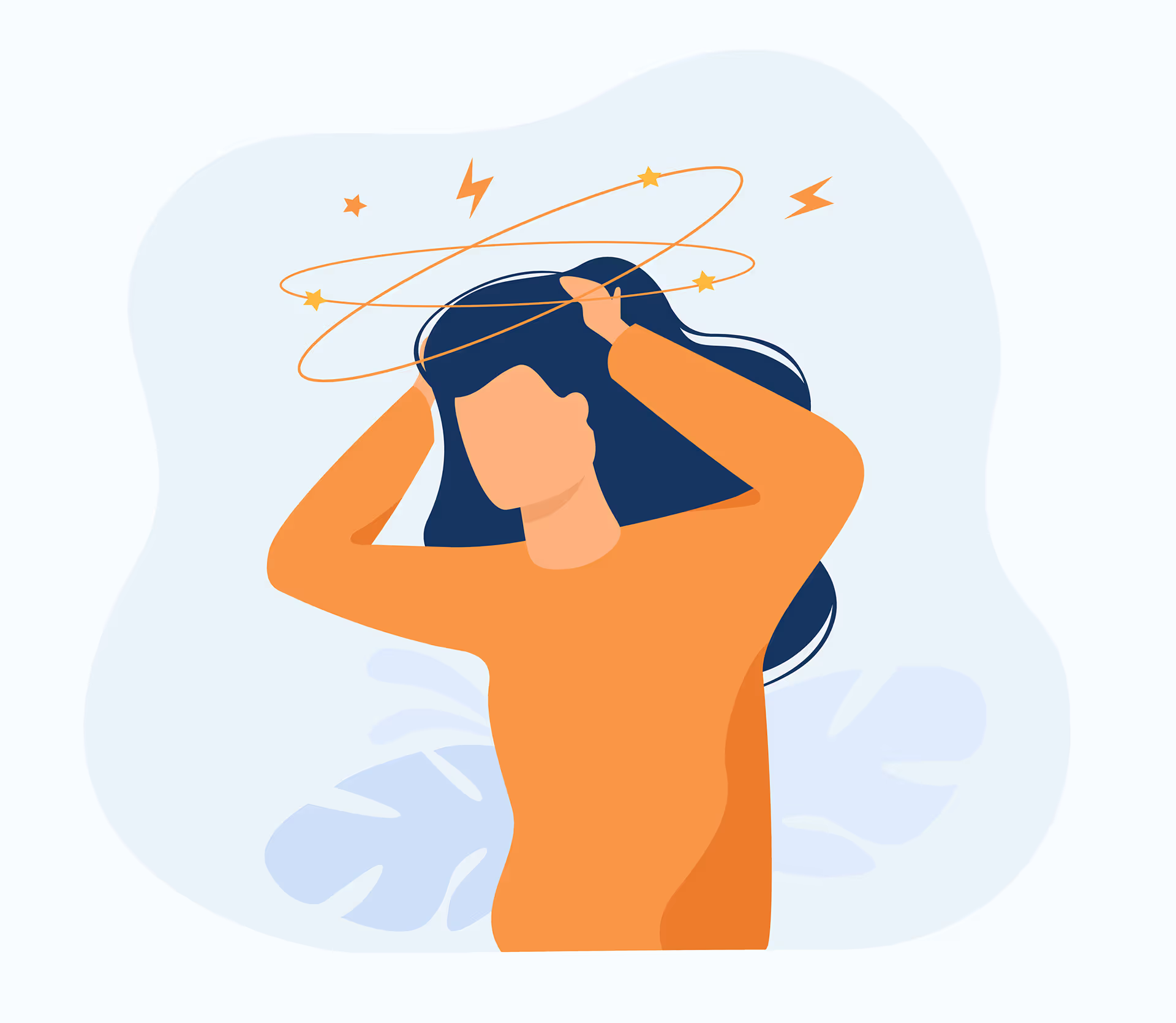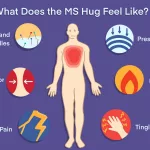Feeling wiped out and a little light‑headed? You’re not alone. Up to 35 % of women in perimenopause report daily fatigue and dizzy spells because fluctuating estrogen throws off blood pressure, your inner ear and blood‑sugar. The good news? A handful of lifestyle tweaks, a couple of targeted vitamins and—if needed—low‑dose hormone therapy can tame both symptoms so you can get back to feeling steady again.
Quick Answer
Perimenopause is the period when your ovaries start sending mixed signals. Those hormonal waves can make you feel as though you’ve run a marathon before you’ve even left the couch, and the same waves can make the room spin for a few seconds. In short: fatigue fuels dizziness, and dizziness can make fatigue feel worse.
Why Together
Hormonal roller‑coaster – estrogen’s effect on the brain & balance
Estrogen is a multitasker. It helps keep blood vessels flexible, supports the inner ear’s balance sensors and even moderates how your brain processes energy. When estrogen drops or spikes, those systems can wobble, leading to both tiredness and light‑headedness. According to Medical News Today, a 2018 Japanese study found that 35.7 % of women aged 40‑65 experienced dizziness at least once a week during this transition.
Blood‑pressure & orthostatic changes
Sudden drops in blood pressure—especially when you stand up fast—can give you a “whoosh” feeling. This is called orthostatic hypotension. Think of it as the body’s way of saying, “Whoa, I need a moment to catch up!” The drop leaves you light‑headed, and if you’ve already been running on low‑energy reserves, the sensation is even sharper.
Blood‑sugar swings & insulin sensitivity
Hormones also meddle with how your body handles sugar. When estrogen dips, insulin resistance can creep in, causing blood‑sugar dips that make you feel shaky and dizzy. A Healthline review notes that these sugar fluctuations are a common trigger for dizzy spells in perimenopause.
Inner‑ear (vestibular) shifts & BPPV risk
Your inner ear is the tiny gyroscope that tells you when you’re upright. Estrogen helps keep the fluid inside that gyroscope stable. When levels wobble, the fluid can move in odd ways, leading to benign paroxysmal positional vertigo (BPPV) – the classic “spinning” dizziness that gets worse when you tilt your head.
Sleep disruption & cumulative fatigue
Night sweats, hot flashes and anxiety often steal sleep. When you’re running on 4‑5 hours of fragmented rest, your brain’s “energy meter” stays low, making every little dip in blood pressure feel like a mini‑earthquake.
| Typical Trigger | How It Affects You | What You Might Feel |
|---|---|---|
| Estrogen dip | Vasodilation + inner‑ear fluid shift | Light‑headedness, vertigo |
| Blood‑sugar drop | Reduced glucose to brain | Weakness, wobbliness |
| Orthostatic change | Sudden BP dip | Head rush, brief faintness |
Feeling Fatigue
If you’ve ever wondered what does perimenopause fatigue feel like, picture trying to run a marathon while wearing a backpack full of bricks. Your muscles feel heavy, your mind feels foggy, and every chore seems to require a champion’s strength. The fatigue is often described as “bone‑deep” rather than just “tired.”
Because the brain is also dealing with hormonal turbulence, that bone‑deep fatigue can overlap with dizzy spells. You might notice:
- Sudden “whoosh” when you get up from a desk.
- Feeling off‑balance after a hot flash.
- Needing a coffee break the moment you finish a cup of coffee (yes, that caffeine crash can mimic dizziness!).
When fatigue turns into dizziness, it’s a signal that your body is asking for a little extra care. If the episodes last longer than five minutes, happen with vision changes, or cause you to stumble, it’s time to talk to a clinician.
Effective Strategies
Lifestyle Foundations
These aren’t “quick fixes” that disappear after a week; they’re sustainable habits that keep the hormonal roller‑coaster from tossing you off the tracks.
| Strategy | How It Helps | Quick Start Tip |
|---|---|---|
| Regular moderate exercise (30 min walk) | Boosts circulation, steadies blood pressure | Set a timer for a 5‑minute stretch after meals |
| Stay hydrated (2‑3 L water/day) | Prevents low‑volume blood flow | Keep a stylish bottle on your desk |
| Balanced meals – low‑GI carbs + protein | Keeps glucose steady, reduces insulin spikes | Snack on nuts and an apple instead of chips |
| Sleep hygiene (7‑9 h, cool dark room) | Reduces cortisol, improves energy metabolism | Power‑down screens 1 hour before bed |
Targeted Vitamins & Supplements
When food alone can’t fill the gaps, the right supplements can be a game‑changer. This answers the “vitamins for perimenopause fatigue” question without turning you into a pharmacy.
- Vitamin D + Magnesium – Supports muscle relaxation, vestibular health, and bone strength.
- B‑Complex (especially B12) – Fuels nerve function and helps convert food into usable energy.
- Omega‑3 fatty acids – Tame inflammation, improve mood and may lessen vertigo intensity.
One review from the Endocrine Society (2022) highlighted that women with serum 25‑OH‑D below 20 ng/mL were twice as likely to report both fatigue and dizziness.
Hormone‑Replacement Therapy (HRT)
HRT isn’t a one‑size‑fits‑all, but for many it smooths out the estrogen dip that fuels both symptoms. A concise pros‑cons table can help you decide:
| Aspect | Pros | Cons |
|---|---|---|
| Energy levels | Improved mitochondrial function, less fatigue | Potential breast‑cancer risk with long‑term use |
| Dizziness frequency | Stabilises inner‑ear fluid dynamics | May increase blood clot risk in some women |
| Hot flashes | Often dramatically reduced | Requires medical monitoring |
Always discuss dosage, delivery method (patch, pill, gel) and personal health history with your provider before starting.
Managing Co‑Existing Triggers
Some women discover that anxiety, migraines or BPPV are the hidden culprits behind their dizzy episodes.
- Breathing & mindfulness – Simple 4‑7‑8 breathing can calm the nervous system.
- Epley maneuver – A step‑by‑step head‑position exercise that often resolves BPPV within minutes.
- Migraine diary – Track triggers; many find that a low‑histamine diet eases both headache and vertigo.
Real Stories
Mia’s Journey (48, Chicago)
Mia called me “the life‑coach who actually listened.” She described waking up feeling “like she’d slept on a pile of rocks” and then, mid‑day, the world would tilt during a conference call. After she added a daily magnesium supplement, swapped her sugary lunches for quinoa bowls, and started a gentle yoga routine at sunrise, her dizzy spells dropped from three‑times‑a‑day to once a month. “I finally feel like my brain has Wi‑Fi again,” she jokes.
Expert Insight – Dr. Lena Ortiz, Board‑Certified Gynecologist
“The most overlooked cause of dizziness in perimenopause is the combination of subtle blood‑pressure changes and inner‑ear fluid shifts triggered by estrogen loss,” Dr. Ortiz explains. “A simple blood‑pressure check and a vestibular assessment can differentiate between a cardiovascular issue and a hormone‑related vertigo, guiding treatment.”
Helpful Tools
Symptom Tracker (Downloadable PDF)
Tracking patterns can be eye‑opening. Below is a quick layout you can copy into a spreadsheet or print:
| Date | Fatigue (1‑10) | Dizziness (1‑10) | Possible Triggers | What Helped? |
|---|---|---|---|---|
| 2025‑08‑01 | 8 | 6 | Skipped breakfast, rushed morning | Glass of water, 5‑min stretch |
Supplements vs. HRT Comparison
| Option | Cost (monthly) | Evidence Grade | Typical Side‑Effects |
|---|---|---|---|
| Vitamin D + Magnesium | Low | Moderate | Rare hypercalcemia if overdosed |
| B‑Complex | Low | Moderate | Flushing (B3) at high doses |
| Low‑dose HRT | Medium‑High | High | Breast‑cancer risk (long‑term), clot risk |
Bottom Line
Perimenopause fatigue and dizziness are two sides of the same hormonal coin. Fluctuating estrogen messes with blood pressure, blood‑sugar and your inner ear, leaving you feeling both drained and light‑headed. The good news is that the problem is usually manageable with a blend of steady sleep, balanced nutrition, targeted vitamins, and—when appropriate—a careful HRT plan.
Start by understanding your fatigue, then add one small habit at a time. Keep a symptom tracker, stay hydrated, and don’t shy away from talking to your doctor about vestibular testing if the dizziness feels out of the ordinary.
Remember, you’re not navigating this alone. Share your experiences with friends, ask questions, and treat your body with the same kindness you’d give a dear companion. If you have any lingering doubts, just reach out—there’s always a way forward.

























Leave a Reply
You must be logged in to post a comment.